If they're all the same color, it's virtually impossible to tell the difference between a piece of furniture made of ash wood and one made of oak. Design, grain, pores are very similar, color is the only difference between ash and oak. In terms of properties, however, the differences are much greater. For example, ash has the property of absorbing shocks without aftershock. That's why it's used to make hockey sticks and baseball bats.
Structure and properties of ash wood
The ash tree - Fraxinus - is a member of the Oleaceae family and although it seems unlikely, it is related to the olive and the bat. The same family also includes 65-70 other types of ash trees and shrubs. The species found here is Fraxinus excelsior, also called European ash or common ash. It is found all over Europe, from northern Spain to Russia, from northern Greece to Norway and as far southwest as Asia. It grows in moist, calcareous soils and is drought-resistant. But it doesn't like low temperatures, which is why it is rarely found at altitudes above 2000m. It doesn't like solitude either, and it is very dominant in the forest.
The tree grows up to 30-35 m, exceptionally up to 40 m, with a diameter of 1.5-2 m (sometimes even 3 m). When young, the bark is thin and smooth, greenish-grey. With maturity the bark darkens, thickens and vertical cracks appear. The leaves fall off late in spring, sometimes after the flowers, which are dark purple. In autumn, the leaves do not change color and fall off at the first frost, keeping their green color.

In cross-section, a broad area of yellowish cream to light brown albumen is visible. The heartwood zone is narrower, light to medium brown in color. Young wood is lighter in color, darkening as it matures. The difference between sapwood and heartwood is not always visible.

The fiber is straight and regular, with ripples occurring rarely. The texture is oak-like. The annual rings are clearly defined and visible. The pores are large and round in the earlywood zone, and are arranged in 2-4 rows. Latewood pores are small and solitary. The medullary rays are not visible to the naked eye and this is also one of the elements that distinguish it from oak.

Ash stands out for its ability to absorb shock without cracking
Ash wood is used both as solid wood and as veneer. It is not very resistant to rotting and insect attack and is therefore not recommended for use in contact with the ground (fencing). Its main qualities are:
- shock resistance and ability to withstand shock without cracking
- flexibility (elasticity)
- light color, almost white
Its elasticity and shock-absorbing properties have made it used in the past to make skis and tennis rackets. Ash sleds are still made for dog racing in Scandinavia. It is also used to make hockey sticks, baseball bats, billiard cues and handles for household tools (hammers, axes). For years it was the most commonly used wood for making sticks.

Being hard and resilient, it's great for floors and is also used in gyms because it absorbs shock.

Some specialists consider ash to be the most resilient species in Europe, but in any case it is the second most widely used species after beech for steam bending. One of the makers of art furniture who has put a lot of value in ash is Joseph Walsh. The distinctive steam-bent shapes, combined with the slightly yellowish white color, have made his furniture pieces true works of art.

It is also used to make ordinary furniture without curved elements. It can be colored easily, but its natural color is preferred.

Thanks to its beautiful design and great color it is also used in the manufacture of musical instruments. Both electric and classical guitars are made, and it is a good material for making sound boxes.

Ash wood is also beautifully turned. Thanks to its pattern and color it looks great when structured, brushing or sandblasting putting it to good use.

It is also a very good firewood because it splits easily and has low water content. In England in the past, when ash wood was used as fuel, it was cut just above the ground and the stump left in the ground. New plants grew from it and after 10 years were cut down again.
Ash bark has also been used for years as a remedy in herbal therapies. It has astringent properties and has been used against fever, liver and bile blockages, rheumatism and arthritis. The leaves and seeds are also used in herbal medicine. Perhaps that is why the ash is considered by the Nordic countries to be the tree of rebirth and healing.

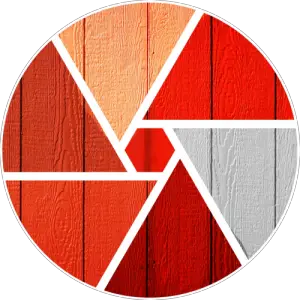











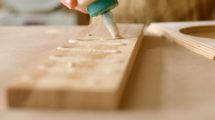

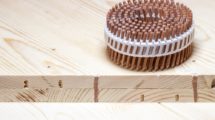

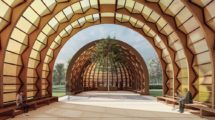
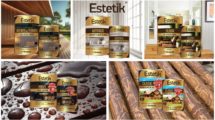

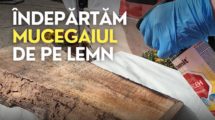


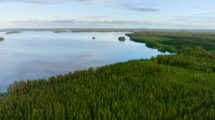


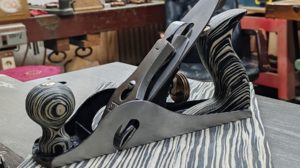
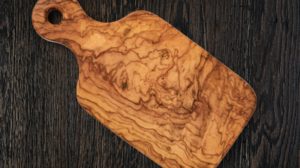









Hello.
I have something very interesting about woodworking and finishing.
How can I show you?
Estimate
You can write me on mihaela.radu@cesbrands.ro.
All the best!
Unfortunately it will disappear from Europe in 10-20 years.
Interesting article about ash Mrs Radu, nice your passion but what do we do with the "Thieves" who leave us without forests for a few years from now!
Sincerely Daniela
Unbelievable, my congratulations, the articles are infectious! I'll subscribe in no time!
Personally I am doing research on oak for laminate flooring application, I was wondering if you have any hints where I could find information such as: difference in appearance of oak, ash, cherry. also if you have any good articles on finishing oak, ash or beech. i will be very grateful!
Thank you!
Thank you too for your appreciation and for subscribing. Your support is important to us.
You can find information about the sky here: https://revistadinlemn.ro/2017/08/29/cerul-lemnul-caruia-designerii-au-transformat-defectele-calitati/
I haven't written about the gorun yet, but it's a good idea. 🙂
You can find more information on horticultor.ro, but I do more research on foreign sites (American, English, Australian, Italian).
I have written quite a lot about finishing. It is my passion and my specialty. There are many articles. I'll give you just a few links. If you need something specific please let me know.
All the best!
https://revistadinlemn.ro/2017/05/30/ce-sfaturi-as-da-unui-incepator-in-ale-finisarii/
https://revistadinlemn.ro/2017/02/13/combinarea-corecta-a-materialelor-de-finisare/
https://revistadinlemn.ro/2016/11/04/lemn-cu-pete-sau-prea-inchis-la-culoare-se-rezolva/
https://revistadinlemn.ro/2016/12/13/grinzi-din-lemn-sugestii-pentru-finisare/
https://revistadinlemn.ro/2016/11/22/finisarea-lemnului-cu-ceara-cand-merge-si-cand-nu/
https://revistadinlemn.ro/2016/11/01/uleiuri-naturale-pentru-finisarea-lemnului/
https://revistadinlemn.ro/2016/08/16/finisarea-panourilor-din-lemn-masiv-imbinat/
https://revistadinlemn.ro/2016/06/27/finisarea-lemnului-cu-efect-natural/
https://revistadinlemn.ro/2017/04/07/mobila-din-stejar-masiv/
https://revistadinlemn.ro/2017/02/16/lacuri-cu-care-sunteti-siguri-de-succes/
Thank you!
Good morning!
I would like to know which of the two wood materials has a higher hardness and is more recommended for steps: oak vs ash. I would also like to know if on a brushed wood (floors, steps) scratches acquired through use become less visible.
Thank you!
Hello!
Oak and ash are very similar, both in design and hardness. They differ in colour. Both woods are good for stair treads.
Yes, brushed wood can hide scratches. The brushed surface will not reflect light as well as a straight one so defects will be less visible. And the choice of varnish gloss is important. The more matt the varnish, the less visible the scratches.
All the best!
Don't forget to subscribe to the printed Wood Magazine! For only 58 lei/year you can find out news in the field, discover craft ideas or trade secrets. We remind you that the content in the printed magazine is different from the one on the website. Details in the link below.
Thank you!
https://revistadinlemn.ro/product/abonament-revista-din-lemn/
Thank you very much! I appreciate your article and your passion!
Hello,
Thank you for the articles on wood. I'm curious what you think about using wood essence for windows? I searched for articles about lime on your site, but did not find any.
with esteem
Hello!
Thank you for your appreciation.
I haven't written about the lime tree yet, but it will come soon. Lime wood is similar to poplar, and there is an article about poplar. The link is below.
I have a very good opinion about laminated wood windows. I have such windows at home, made of laminated oak. They fit very well on an old house, respecting exactly the original design, so that nobody thinks they are double glazed windows. They are more expensive than PVC, but cheaper than aluminium. There are also laminated wooden windows that are aluminium clad on the outside.
I also put a link about windows, maybe it will inspire you. 🙂
All the best!
https://revistadinlemn.ro/2017/03/17/lemnul-de-plop-linguri-copai-dar-si-mobila-arte-povera/
https://revistadinlemn.ro/2018/05/14/ferestre-din-lemn-influenta-lor-asupra-eficientei-energetice-a-casei/
Hello, I have a question, what do you think if Frasin wood and make the skeleton of a book press? or what kind of wood do you think would be best? Thanks !!!
Hello!
I don't know what qualities a book press skeleton must have. If you need a hard but resilient wood, then ash is suitable.
If you provide me with more information I can make more accurate recommendations.
All the best!
[...] Ash, the wood that absorbs shocks [...]
How good is it on fire?
Good evening!
Very good. It is similar to oak, burns beautifully, has high calorific value and little ash remains.
But it's a shame about him, he's also very beautiful.
All the best!